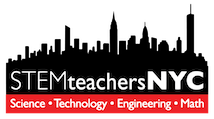The January 2025 meeting of the Equity Lab continued the group’s book club discussion, focusing on Punished for Dreaming, while also providing a space for sharing educational resources, discussing recent news related to equity in STEM, and exploring ways for members to take on leadership roles in equity work. The conversation centered on key themes from chapters 9 and 10, which critique the limitations of DEI initiatives in schools and emphasize the need for white educators to take greater responsibility in confronting systemic inequities. Additionally, members shared valuable teaching materials, reflected on current events impacting equity in education, and discussed opportunities for deeper engagement in both the Equity Lab and broader advocacy efforts.
During the book club discussion, members examined how DEI efforts in schools are often reactive rather than proactive, with limited institutional support for those leading the work. One example discussed was Lia, a DEI director at a majority-white private school, whose role largely involves protecting Black students and explaining racism to white colleagues. The group also explored systemic inequities in school choice, including how NYC’s specialized high schools and gifted programs disproportionately serve white and Asian students, despite the city’s majority Black and brown student population. Chapter 10 further challenged members to consider how white educators can engage in antiracist work beyond performative gestures, emphasizing the need for ongoing education and self-reflection. A central question that emerged from the discussion was: What does it take to change people’s deeply ingrained beliefs?
Following the book discussion, members shared educational resources to support equity-focused teaching. Highlights included Solving Disproportionality and Achieving Equity by Dr. Edward Fergus and the NYCDOE’s Pre-K through 12 Black Studies Curriculum. Participants also discussed upcoming initiatives, including the development of a Latine Studies Curriculum. In addition, recent news related to equity in STEM was shared, covering topics such as the long-term effects of leaded gasoline on mental health, the findings of a federal report on the Tulsa Massacre, and a study on how ChatGPT use impacts student learning outcomes.
The meeting also presented opportunities for members to take on leadership roles within the Equity Lab, with an open invitation for those interested in facilitating future discussions. Additionally, members were encouraged to consider running for NYC’s Community and Citywide Education Council (CEC) to advocate for policies that promote equity in schools. The session concluded with a reminder about the next Equity Lab meeting on Monday, March 3, which will continue the book club discussion and focus on supporting immigrant students and families in school communities.
Note: summaries are written with the aid of AI software

